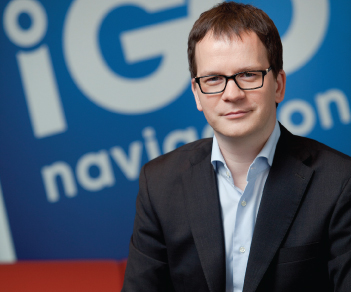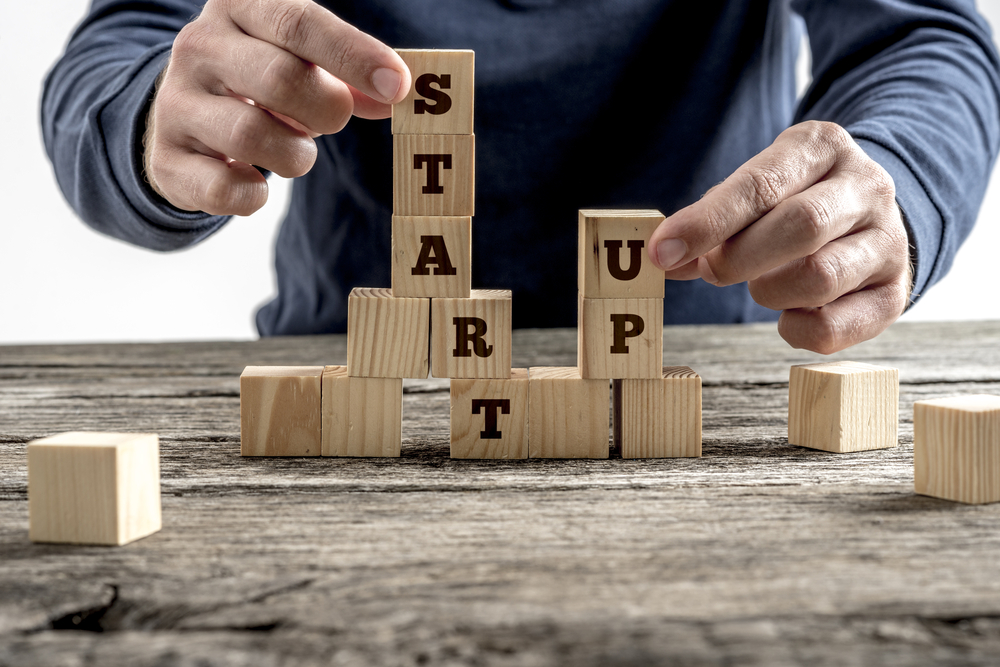Big in Japan

The following interview appeared in the June 6 - June 19 print edition of the Budapest Business Journal.
NNG CEO Péter Balogh talks exclusively to the Budapest Business Journal about navigating the journey from startup to global automotive GPS leader, the almost fatal crash of 2008, taking risks, seeking success in Japan and coming to grips with budgetary discipline.
Q: NNG was a startup in 2004. Now it is clearly something much bigger. What is harder, running a startup or an established company, and why?
A: If you are talking about work and energy, then both are pretty much the same. In terms of challenge it is very different. Running and leading a startup is a lot more exciting on a daily basis, it has a lot more moving parts. Indeed, for the first few years we only had moving parts. It is just as challenging or rewarding running something bigger, where many things are established. But you have to keep a balance between what was required and what is or will be. I challenge myself and the organization to constantly think about things to come, things to change, going back and seeing if we still need to do things the way we have been. There are still a lot of moving parts, but they are mostly outside. You need a lot less patience with a startup. As a company grows, you need a lot more. It can take years for an initiative to bear fruit.
Q: You have more people to worry about now.
A: Do I feel the weight of all these people? I try my best not to. If I was worrying about 600 families with every step we make, I would make bad decisions, because I would be too focused on safety, and a company has to take risks.
Q: When do you think NNG made the transition from startup to success story?
A: I said at the [BBJ innovation] conference that I heard this from a technology investor company’s leader: being a startup is where things are only looking up, you are growing, it is exciting. Eventually a startup gets a punch in the face, and you either become a company or you are dead. Make it or break it. That’s exactly what happened with us. For the first couple of years we were growing like crazy, at a really amazing speed. In 2007 we had very high revenue profit, were an international success, number three in the world. In 2008 we got that punch in the face. That was brutal; it reset our thinking. Before that we were probably too full of ourselves. We thought it would never slow down, we did not have any cadence; we had been running so fast our noses were almost touching the ground. And then, quite suddenly, they did.
At the time some of the managers, some of the shareholders took a step back, they did not do anything. That was a wake up call to me. I had moved everything I had into the company, I was all-in, could I do more? I got more involved, I decided to fight; I did not want this to go away. Until then I had basically been CTO: on paper I was managing director, but this was when I got more involved on the business side. I had a couple of weeks to try to understand the situation and start making decisions. We had to stop the bleeding immediately, sadly we had to say goodbye to some people quite suddenly. We replaced the main management, and found really good managers who stepped in and helped with their experience. Then we had three years of the company shrinking; we had to keep tightening our belts. It was only when the first automotive products hit the market that things started to feel different. We had emerged as a company.
Q: 2008 is a year that looms large. Were your problems caused by the global crisis, or was it something more internal?
A: It was both. The whole GPS market really exploded in 2006-7, so in a sense we arrived with perfect timing, just as the party was starting. For two years running PDAs were the most popular device for Christmas, and everybody expected that to continue. I think we thought people would have three devices – I don’t know what we were thinking. In 2008 we had the crash and suddenly the market growth stopped; it had saturated really quickly. There were a couple of other external factors; the Chinese suddenly increased the minimum wage, and five or six companies disappeared owing us money.
Internally we were a company in startup mode: if we wanted something, we didn’t care how much it cost –we needed to have it now. We were not focused; we were making so much we could not spend money fast enough. But we did not know where we stood financially. We did not know how much money we had on a daily basis, did not know how much money we had in the accounts. We thought the handheld GPS market would last forever. Last year it generated 10% of our revenues. Five years ago it was the only thing we had. We realized we had to get out, to find a new market where we could use the same ideas.
We thought the automotive market was very interesting, very stable, very long-term, but we needed to grow up as a company. We did not have quality under control, did not have too many target openings into the market, and we knew it would take many years. So we also tried to find something short-term, and selected the wireless smartphone business. We were the global navigation partner of Motorola up to a week before it announced it was going with Google and launching its maps for free.
We did not lose money, but we did not make any either. It did not save us and it did not kill us. We could secure enough money with handheld GPS and that sustained us until 2011 when the first cars with our navigation software rolled off the production lines and we began to see money again.
Q: Do you still think like a start-up, or is that a luxury you are no longer allowed?
A: In our relationship with our teams (unless we are talking in a very legal sense we don’t talk of employees or subordinates). In IT and software, people do not like hierarchy. We have managed to preserve a very open, democratic and friendly company. It is perfectly OK if somebody calls me an idiot, if I am being an idiot. In fact, it does not happen enough; I am pretty sure I am being an idiot more often than people are telling me. We encourage a very open dialogue, we ask for feedback from our people and try to act on it. This is the most important part in any startup, the company culture aspect.
The accounting basis is very different now. We have a budget, long-term plans. Every day I know exactly how much money we have, how much we owe and how much we should receive. There is a strict and total understanding of the processes now.
Q: What has surprised you most about the journey?
A: We tend to underestimate our impact, what we can do in the market. The whole market tends to underestimate us, too! We are too small, we are Eastern European, we are too young, we are not able to do anything. On a daily basis we have proved them wrong. I am surprised sometimes that we grow 40-50% year on year, while our competitors are still struggling to find a product that works. And that makes me very nervous, because we have some very smart companies challenging us.
I am surprised that even at this size we are growing and can still find great people. They are getting harder to find, but I am amazed about the great quality people we work with here. Finding people is becoming a struggle: we work with 12 different headhunters, we have even placed ads for jobs. We spend a lot on marketing and PR in a country where we do not have a lot of customers. It is almost all focused on employer branding. We hired 150 great people last year, and it will be around 180 this year. And we do not ever lower our standards – that is very important. We could grow the office more is we had more talent available.
Q: If you could change just one thing about doing business in Hungary, what would it be?
A: This is another pet peeve. We were always targeting international and global customers. We never considered Hungary as a core market because any local competitor would cheat… cheat on its taxes, not pay the VAT it should, be a ‘funny’ company. That is why there are very few Hungarian mid-size companies. A huge proportion of companies and people are avoiding taxes on a daily basis, that makes competition impossible, and survival and growth questionable. If you think like that, everything else fails. You cannot expect quality from any service provider who is here simply for today, without a long-term vision. I was remodeling my house a few years ago and thought, ‘If I am paying my taxes and earning legally, I want to give my business to people who are doing the same.’ It was really hard to find any legal companies, from plumbers to decorators to whatever. This is not a small problem, this is huge.
Q: Do you see NNG as a Hungarian company, or an international company based in Hungary?
A: On one hand, we see ourselves as a Hungarian company. It started here, 95% of the team is Hungarian, the senior management includes Hungarians, and the team leaders are all Hungarian. We are very proud of being a Hungarian company. At the same time, we are a global company – we sell to the whole world. But if you are a software company, Hungary is a great place to be incorporated. The taxes around software development are really favorable, and this is a relatively little known fact.
Q: How did you get to a stage where seven out of the ten biggest auto makers use the iGO Navigation Engine?
A: We were lucky when we set up our vision. We were not as deep into this market that we could hear what everybody was saying, that they perceived our goals as unachievable. We thought they were possible, and we were proved right. We predicted a change in the market that other players could not see. And innovations on the business and technology side helped us. It also helped that we were very aggressive, very hungry, partly due to having tasted bankruptcy. We really wanted to be in a lot of cars and create a great product. That drive is still there. Something else works for us: Hungarian people still take their work seriously, go out of their way to make sure we can deliver what we promise, to accommodate the sometimes-crazy wishes of our customers. No market is really sane completely, but this market is insane at times.
Q: Your website says the next step towards global expansion is to enter the Japanese and South Korean market. Why, and how is it going?
A: One of the ideas we figured out was that a lot of people were in one or two markets only; if you could offer a global navigation solution you would have a major advantage. Automakers could save a lot of money if they did not have to work with separate suppliers in each country. We have done everything except Japan and Korea. China was already difficult, but it is a big market. Japan started the whole navigation business years before Europe, it is a very advanced and culturally very closed. Ten years ago it would have been unfathomable to even imagine someone from the outside entering. It has been a major, challenging project, but we now have a couple of products hitting these markets. We have decided we will be good in Japan, whatever it takes. In the global market, half the share comes from China, Japan and Korea. So entering here means doubling the market. Also, it is the last challenge left in town, and you have to have a good sport, right?
Q: And future plans beyond that? What sort of timeline do you plan ahead with?
A: In terms of business planning we are working five years ahead. We have now projects that will launch in 2017 and sell for five years, so we have revenue visible out to 2021. We also know growth will have to come from somewhere else, so we need to figure out what our growth engines will be. Automotive technology is a very wide field, and we see a couple of opportunities to grow for the future. This is now what we are focusing on in the company’s top management. The sales cycle is so long: you build something and in three years you can expect some revenues.
That does not mean we will stop doing navigation, it is a very important business, offering great value for the end user. It feels very good that 20 million people rely on stuff we created. There are a couple more tens of millions of people still out there. But we also know this alone is not likely to be enough.
As our growth continues we realize that we cannot do what we do in Hungary alone. We have to establish operations in other countries as well. What I sense and feel in the company is that one of the great things about Eastern Europe is that it is close to the market, not just in terms of time zone but also culture; we understand Europe and North America. Building something in Asia is a much tougher challenge.
My pet theory is that the change in political system that happened when my generation was young showed Eastern Europe that no system lasts forever; it created flexibility in mindset. That goes back to how you understand and build an organization. Western Europe and America believe in tradition, how it has always been done. That is why Eastern Europe is a great place for IT companies, this mindset.
BOX: A few days after our interview, Google announced plans to build its own driverless cars within the year. We wondered how that might impact NNG’s business, and went back to Péter Balogh.
“In the short-term, we see cars getting smarter and smarter, providing more information coming from more sensors, to help the drivers. This increases the demand for smarter infotainment systems and deeper integration of software technology into the car.
“As a second stage, cars will start making more and more decisions on their own, augmenting the driving experience and taking over for longer periods of time (e.g. highway driving), where entertainment aspects will increase, yet the safety and security aspect stays deeply integrated with that. The driver can read emails on the highway, but only in a very integrated experience, while still keeping his/her eyes on the road, ready to intervene. We see this stage also very well aligned with our strategies.
“In the long-term (15+ years from now) the majority of cars will drive themselves almost all the time, completely automated. This is where consumer electronics can finally take the full stage as well, as the cars become driver-less. This will still require an arsenal of embedded technologies for the car, integrating lots of data from lots of sensors, so we’re sure we'll find our relevance there as well.”
SUPPORT THE BUDAPEST BUSINESS JOURNAL
Producing journalism that is worthy of the name is a costly business. For 27 years, the publishers, editors and reporters of the Budapest Business Journal have striven to bring you business news that works, information that you can trust, that is factual, accurate and presented without fear or favor.
Newspaper organizations across the globe have struggled to find a business model that allows them to continue to excel, without compromising their ability to perform. Most recently, some have experimented with the idea of involving their most important stakeholders, their readers.
We would like to offer that same opportunity to our readers. We would like to invite you to help us deliver the quality business journalism you require. Hit our Support the BBJ button and you can choose the how much and how often you send us your contributions.







